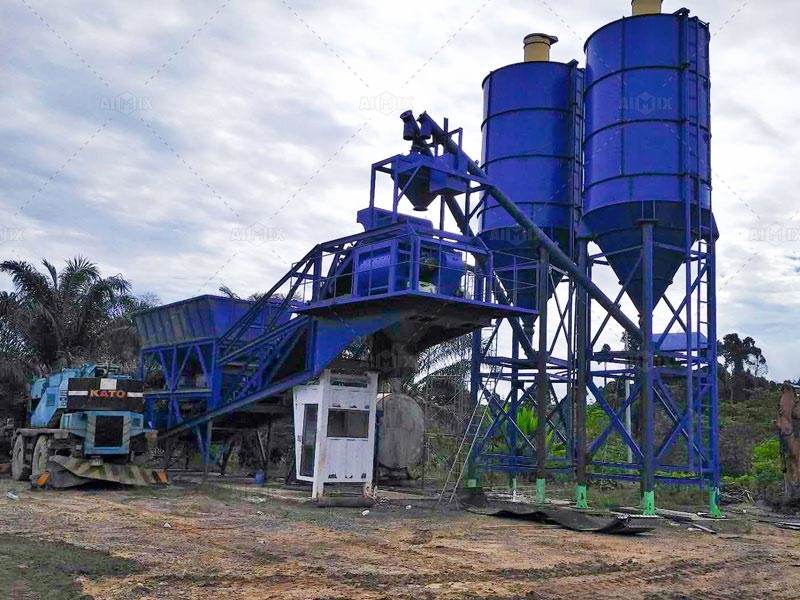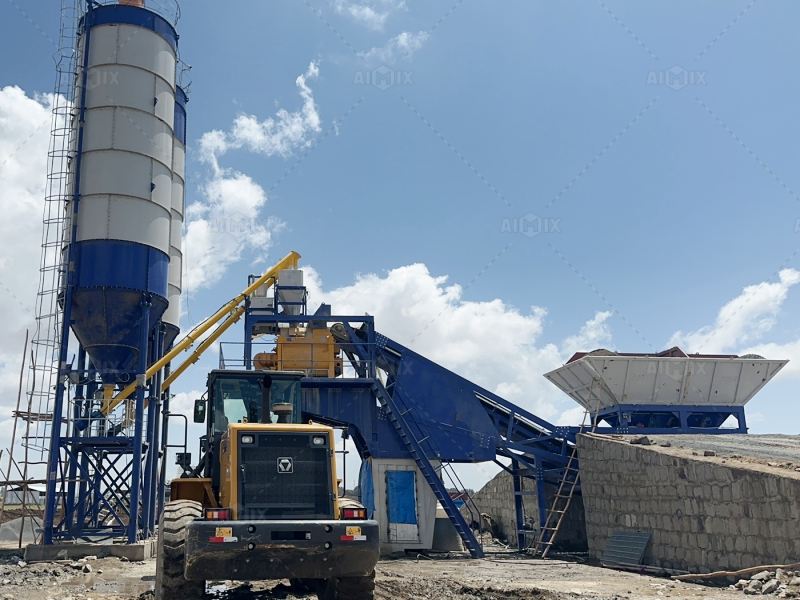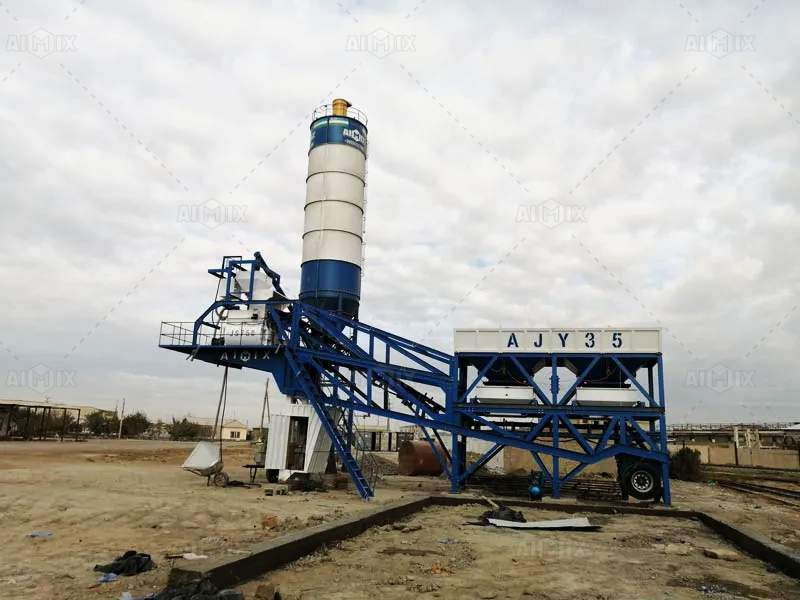The construction industry is undergoing a technological transformation, and one of the most significant advancements driving this change is the evolution of the mobile concrete batching plant. Once seen as a secondary option to traditional stationary batching plants, mobile units have grown into powerful, efficient systems capable of delivering high-quality concrete on-demand—directly at the job site.
As global construction demands rise, especially in infrastructure, urban expansion, and remote developments, mobile batching plants are becoming the preferred choice for many contractors. This article explores how mobile concrete batching plant technology is revolutionizing on-site mixing, and how it compares to traditional ready mix concrete plant setups and stationary batching plants. We’ll also look at the current trends in the market for a concrete batching plant for sale.

The Shift Toward On-Site Mixing Solutions
Historically, the construction industry relied heavily on ready mix concrete plants. These centralized facilities produce concrete in large quantities and transport it to job sites in mixer trucks. While effective for projects near urban areas, this model often falls short in remote or time-sensitive scenarios due to:
Long transportation times that can compromise concrete quality
Higher fuel and labor costs
Limited flexibility in delivery schedules
Enter the mobile concrete batching plant—a compact, trailer-mounted or skid-mounted system that brings concrete production directly to the construction site. This not only solves logistical problems but also gives contractors greater control over mix quality and timing.
Key Technological Advancements
Recent developments in mobile plant technology have drastically improved their efficiency, automation, and performance. These upgrades are making mobile plants an attractive alternative to traditional solutions.
1. Automated Control Systems
Modern mobile batching plants now feature advanced PLC-based control systems. These allow for precise weighing, mixing, and real-time monitoring of ingredients—ensuring batch consistency and reducing human error. Automatic calibration and diagnostics further enhance reliability and reduce downtime.
2. Compact and Modular Design
Today’s mobile plants are designed to be compact without compromising capacity. Modular designs allow for quick setup and dismantling, usually within 1–3 days, compared to the weeks it can take for a stationary setup. This portability is crucial for contractors working across multiple locations.
3. Energy and Water Efficiency
Leading manufacturers have integrated water recycling systems and energy-efficient motors into mobile batching plants. These features reduce environmental impact and operational costs, aligning with global sustainability goals in construction.
4. Real-Time Data and IoT Integration
Some of the latest models include smart sensors and cloud connectivity, enabling managers to monitor plant performance remotely. Features like GPS tracking, productivity analytics, and maintenance alerts empower teams to optimize plant usage and prevent costly delays.

Advantages Over Stationary Batching Plants
While stationary batching plants remain essential for large-scale or long-term projects, mobile batching plants offer unique advantages:
Mobility: Easily transported between job sites
Quick Setup: Requires less foundation and fewer civil works
Flexibility: Ideal for short-term or fast-paced projects
Cost-Efficiency: Lower capital investment and reduced transportation expenses
Mobile plants are also a go-to solution for emergency or temporary works, such as disaster recovery, military applications, and seasonal infrastructure upgrades.
Ready Mix vs On-Site Mixing
A ready mix concrete plant is still suitable for urban or suburban areas where delivery distances are short. However, for remote areas or projects requiring frequent design changes, mobile plants deliver concrete with greater flexibility and responsiveness.
With a mobile plant, teams can:
Adjust mix ratios on the fly
Reduce wastage due to over-ordering
Maintain consistent supply during extended work hours
This level of control and responsiveness is nearly impossible with off-site ready mix concrete plant, where delays and quality degradation are more common.

The Market Outlook: Concrete Batching Plant for Sale
As demand for faster and more efficient construction rises, so does the market for mobile solutions. The concrete batching plant for sale market is experiencing steady growth, with mobile plants leading the charge. Contractors are now seeking equipment that is not only affordable but also adaptable and technologically advanced.
Top manufacturers like Aimix, ELKON, and Liebherr are introducing mobile plants with capacities ranging from 25 m³/h to 100 m³/h. These plants are well-suited for small- to medium-scale projects, including road construction, bridge works, and commercial building development.
Key buying considerations include:
Output capacity
Type of mixer (twin-shaft, planetary, pan)
Mobility (trailer or skid-mounted)
Automation level
Service and spare parts availability
Final Thoughts
The rise of mobile concrete batching plants represents a fundamental shift in how concrete is produced and delivered in modern construction. By combining portability, automation, and high-quality output, these systems empower contractors to operate more efficiently, especially in challenging environments.
As the technology continues to evolve, mobile batching plants will likely become the industry norm for many types of construction projects. Whether you’re in the market for a concrete batching plant for sale or looking to upgrade from a traditional ready mix concrete plant, mobile systems offer a future-ready solution with clear performance advantages over conventional stationary batching plants.